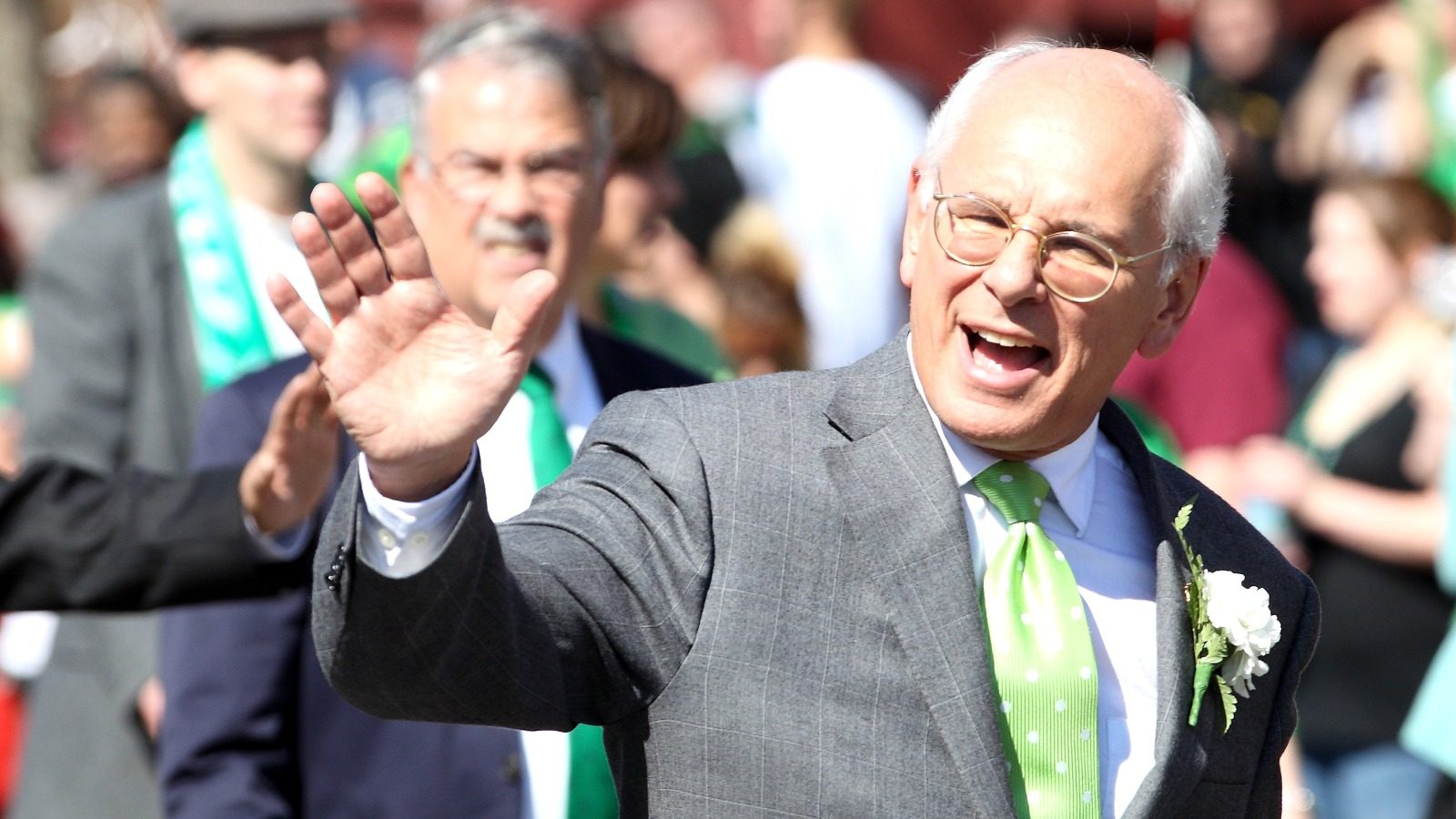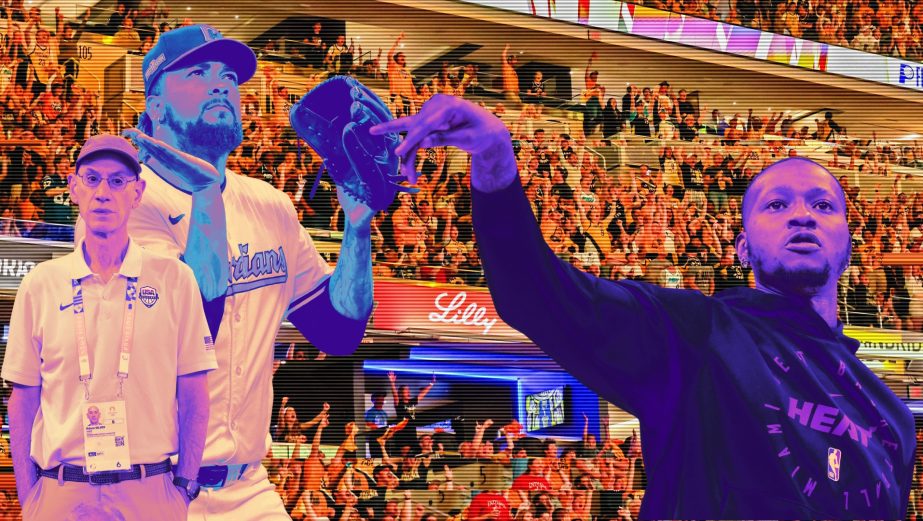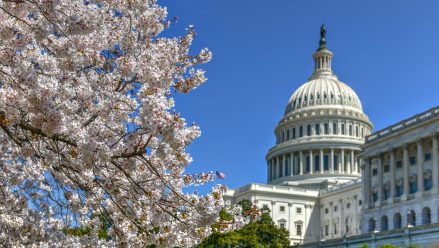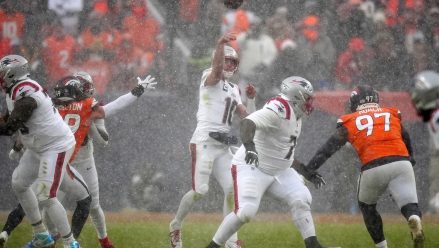Rep. Paul Tonko Thursday blasted seven U.S. professional sports teams and called state gambling regulators “fundamentally flawed” when he weighed in on the NBA sports betting scandal the FBI revealed Oct. 23.
Tonko is the co-author the SAFE Bet Act, which would essentially turn the regulation of digital sports betting over to the federal government. Tonko held a press conference on the first version of the bill in February 2023, another on the current version in September 2024, and a third on the current version in March 2025. It has gained no traction.
Tonko’s letters capped a week that saw legal sports betting and its federal rivals, prediction markets, at the top of the news. Calls for better integrity monitoring and leagues defending wagering partnerships followed the arrests of Miami Heat guard Terry Rozier in a sports betting scandal and Portland Trail Blazers coach Chauncey Billups in a “mobbed-up” poker case.
The NBA suspended both following their arrests, and has begun a review of its injury reporting protocols. The arrests come more than a year after the arrest of Jontay Porter, a former two-way player with the Toronto Raptors, who awaits sentencing after pleading guilty of conspiracy to commit wire fraud. Rozier allegedly and Porter admittedly shared information with bettors that they would leave games early, meaning that “under” bets on points, assists, and other statistics would pay. In both cases, the regulated industry flagged suspicious betting activity around the games in question.
Similar scandalous situations have arisen in Major League Baseball, the NFL, and the NHL in the last several years. In nearly every situation, integrity monitors hired by sports betting operators identified unusual betting activity that resulted in league or federal investigations.
Tonko: Pro leagues have sold out
Tonko, however, wrote that leagues’ “claims of prioritizing integrity ring hollow when leagues have sold credibility to gambling operators, integrated betting content into broadcasts, normalized wagering for teenagers, glorified it in advertising, and then failed to prevent criminal conduct from taking hold within the sport.”
His solution is a federal framework that would not only put stringent advertising guidelines around wagering operators, but would also require states that have already developed comprehensive sports betting regulations to ask for permission — every three years — from the federal government to continue to allow platforms to operate.
“The choice before you is now explicit. Either engage directly with Congress to establish
mandatory federal guardrails that restore integrity and protect the public or stand in opposition
and accept responsibility when the next scandal breaks and more families and lives are
destroyed,” Tonko wrote.
Earlier in the week, the American Gaming Association also sent letters to three of the four major U.S. professional sports leagues, the Sports Business Journal reported. Those letters, however, take aim at the Commodity Futures Trading Commission (CFTC), which oversees prediction markets, including Kalshi. Those platforms offer a financial product that closely resembles state-regulated sports betting, but the CFTC lacks the advertising, integrity, responsible and problem gambling, and consumer protection guidelines that exist in states.
Tonko did not address the rise of prediction markets or the lack of oversight from the CFTC in his letters. But the AGA wrote that prediction platforms like Kalshi, Crypto.com, or Polymarket are “insufficiently regulated” and “devoid of the consumer and integrity protections that define legal sports betting.” The NHL Oct. 22 announced that it partnered with Kalshi and Polymarket in a deal that will allow the platforms to use NHL marks and logos, and gives the sector a kind of validation it did not previously have.
As Tonko tries to pressure the legal sports betting industry into making a massive change, Coinbase CEO Brian Armstrong’s actions sent up a red flag showing how easy it is to manipulate a prediction market, which would not fall under Tonko’s SAFE Bet Act. Armstrong this week added a string of words to the end of his third-quarter earnings call to swing contracts from “no” to “yes” on Kalshi and Polymarket, and the world got a taste of how easily prediction market contracts can be swayed, not just by insider information, but on a lark.
Here’s what they’re saying
The Tonko and AGA letters bookended a week in which the state of legal sports betting has been hotly discussed, and President Donald Trump made his own kind of prediction market news — one of Trump’s businesses is poised to begin offering sports event contracts on social media site Truth Social.
The U.S. professional sports leagues and the NCAA have had plenty to say since the NBA arrests. Here’s a look:
- Last Friday, the NFL’s Management Council sent a letter to teams strongly suggesting they remind players and team personnel that betting on the NFL and match fixing are violations.
- The NBA has begun a review of how it can better protect the integrity of the game, including reviewing its injury reporting protocols. The league sent a letter to team executives alerting them to the review and encouraging input.
- Major League Baseball Commissioner Rob Manfred spoke out defending his league’s sports betting partnerships, saying “we didn’t ask to have legalized sports betting,” but now that it’s here, “access to data is crucial,” which requires the league to partner with sportsbooks. MLB is currently conducting investigations into suspicious betting activity around Cleveland’s Emmanuel Clase and Luis Ortiz.
- MLB’s players’ association Executive Director Tony Clark called for a prohibition on prop bets. “We’ve heard a lot about prop bets of late and it is one of the things we were concerned about from day one as well,” he said.
- NCAA Executive Director Charlie Baker released a statement outlining the NCAA’s betting policies, which he called the “most aggressive competition integrity policies.”
- The NCAA’s Division I Council is now trying to walk back a a new rule that would allow college athletes to bet on professional sports. The NCAA currently bans its athletes from betting at all, but all three councils approved the new rule, which was set to get into effect Saturday until the Division I Council voted this week to push the date back to Nov. 22 to allow its members a chance to reverse the decision.







